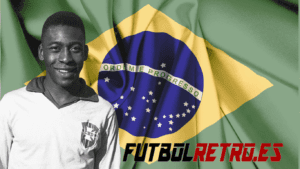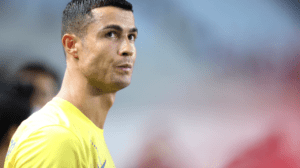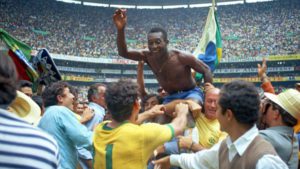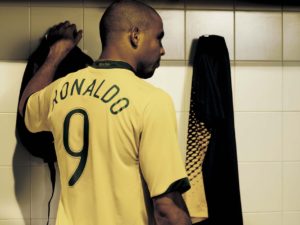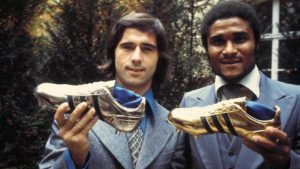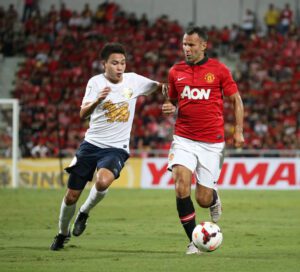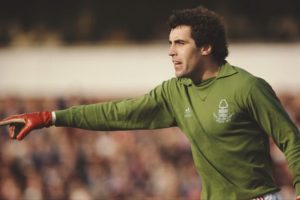Josef Bican, top scorer in the history of football
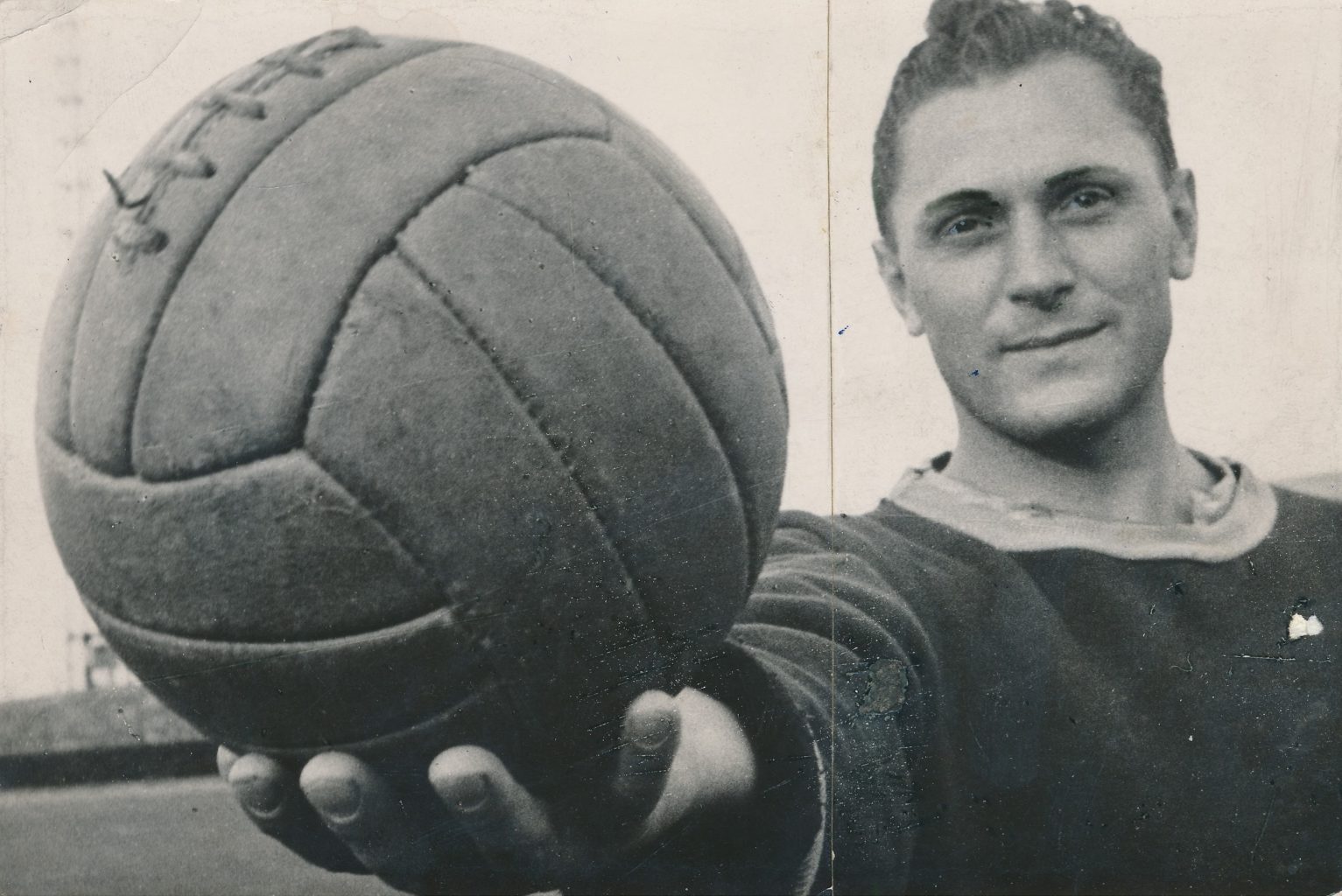
Josef Bican is, nowadays, and permit what they can achieve in the near future players like Cristiano Ronaldo or Leo Messi, the top scorer in the history. He achieved in official meetings 805 goals in just" 530 overcoming parties 757 goals Skin and the 749 of Romario, his immediate followers in the list of Top scorers in history.
Josef Bican He born in Vienna, the 25 September 1913, within a working family, very humble. In his childhood he lived own hardships of World War I., where his father was forced to participate, enlisted in the Austrian army, and which he survived, the little dying to end the conflict for kidney cancer.
A difficult childhood
"Fepi" Bhicn, like so many other children of the age, He began playing soccer barefoot, not to spoil the only shoes available to, through the streets of the poorest districts of the Austrian capital. There, discovered by chance by a coach, He was captured by Hertha Vienna, club where he had also played his father in his youth. At eighteen he was signed by the Rapid Vienna and then he signed his first contract as a professional footballer.
Rapid achieved in the number of 52 goals in 49 matches, It is signed by the Viennese Admira, with a contract that was twice what earned in set verdiblanco. With the Austrian national team, a team that at the time was known as the "Wunderteam" (the dream team). further, in the year 1934, It was top scorer in the Austrian league and played in the World Cup in Italy, where the selection of his native country ended in a fourth meritorious position. The best World Cup qualifier in Austria in its history.
In 1938, when Hitler annexed Austria, Josef Bican, He is refusing to join the Nazi party, to which he had publicly criticized on more than one occasion, and flees from the country to the obvious possibility of being arrested, settling in Prague, in neighboring Czechoslovakia. Fichando Then what would be the most important club in his career, Slavia.
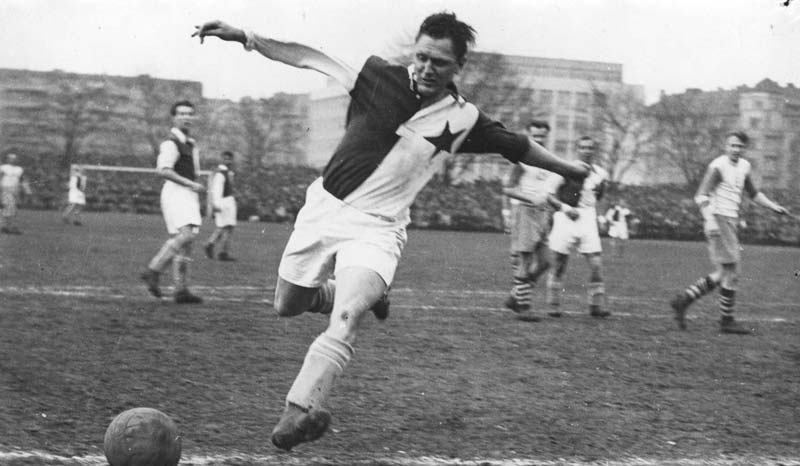
But the advance of troops Hitler and continued with the arrival of the Nazi army to the country, and the birth of the Protectorate of Bohemia and Moravia, is football which saves him from being arrested as an opponent of the pro-Nazi collaborationist regime of the new nation and also being recruited for the army. With football with little activity, almost stopped by war, Bican developed various tasks in the national railway company, although he came to play an encounter with the "national" selection of the Protectorate and some more, friendly character, with his club.
Josef Bican rejects Juventus
After the defeat of the Germans in World War II, Josef Bican nationalized Czechoslovak. He had an offer on 1948 to sign for Juventus, But he rejected the rumor that come in Italy was to proclaim a communist republic, and Bican, democrat, He has feared a dictatorship more. He said no to Juve and stayed in Prague.
A few months later, It was the Czech and Slovak Communist Party, directed by Klement Gottwald, which took power of the country, abolishing and prohibiting other parties and ruling the state dictatorially. Bican he refused to join the Communist Party and, maligned by the press of the new regime (media accused him of "bourgeois" and "traitor"), he was forced to leave Prague for recommendations of new leaders, "For their own safety".
He left the capital, settling in Viktovice, where he combined his work in the steel industry with football, playing on the local computer, the Zelezamy. Anticommunist manifest its position made her play banned football for a few months, in order to take away from "the media", but his presence was needed in the selection, and it agreed to seek a destination that was far from the media spotlight of the capital, but that would keep him in shape to defend the jersey of the national team when it was necessary.
A) Yes, It will be processed again federative tab and forced to change city and play with the modest Hradec Králové, while simultaneously (as opposed to other elite players if they had joined the Communist Party and, for that reason, they could devote himself exclusively to football) He worked as a laborer for the railroad company Czechoslovak.
Return to the Slavia and withdrawal
But everything changed in 1953, during the celebration of Labor Day, in which the Czechoslovak president, Antonin Zapotocky came, as usual, to walk the streets of Prague to take a walkabout in honor of the regime that ruled the nation. It was not so, people, evening in protest shouting "Bican, Bican…”. That prompted the president himself ordered him to return to the Slavia striker, that then those already called Dynamo, with full dedication to football, in order to satisfy the people and they could not use socially relevant character as a symbol of oppression or fighting some.
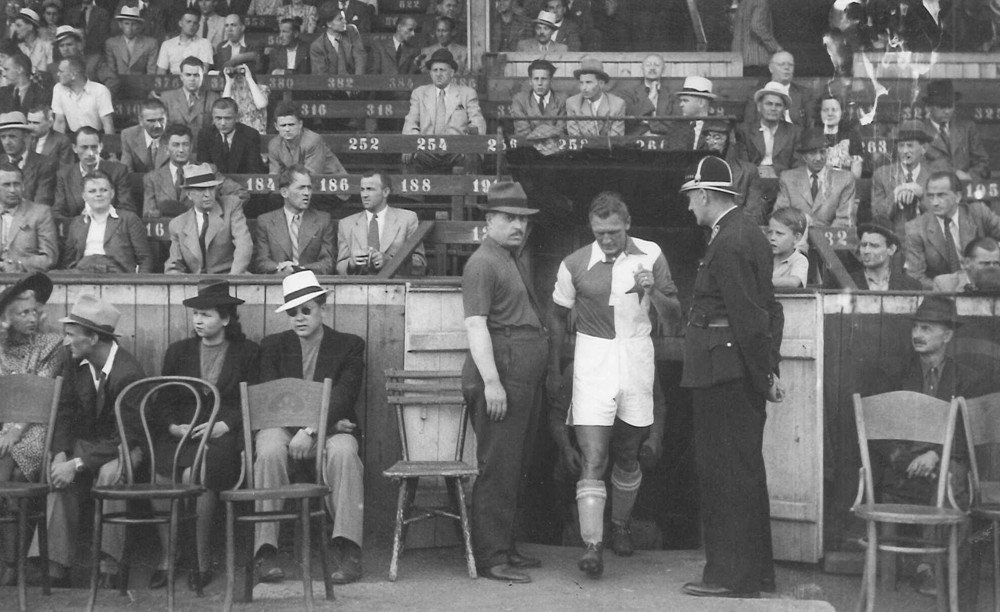
Bican played on that team until his retirement at the forty-two years. Then, the regime was forced to leave Prague and return to continue working for the railway company. In his career, in addition to being the top scorer in the history, It was 6 times by Austria, 1 with Bohemia and Moravia and 14 Czechoslovakia. It was once top scorer in the Austrian league, in the aforementioned 1934, and ten times the Czechoslovak, between 1938 Y 1950.
Bican It was a complete striker. An extremely rapid nine (in the beginning he combined football with athletics, always sprints, getting several medals at junior championships specializing in the hundred meter dash), a player who beat her with both legs, strong, with great technical, Good header and very efficient in the area. further, It was a specialist from the spot, where penalties transformed with tremendous ease, always pulling to break and adjusted to a post, He came to get score more than thirty, at the time of the Slavia, without missing any.
Definitely, a front center of the most important football gave although this did not stop Josef Bican died in a precarious economic situation 2001, seventy-six years old. After the fall of the communist dictatorship, It was rehabilitated by the new democratic regime, establishing in his honor awards "Freedom", the most prestigious awarded each year the Czech government in different disciplines related to culture, sport and defense of human rights.

